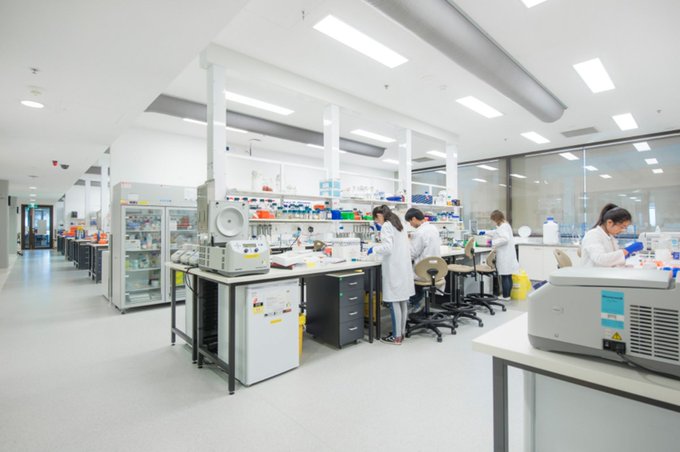La Trobe receives $4.1m in ARC grants
La Trobe University researchers have received $4.1m in funding from the Australian Research Council (ARC) for 10 important new projects.
Announcing the projects this month, Minister for Education Dan Tehan described them as being “in the national interest”.
The La Trobe-led projects cover a diverse range of topics including evaluating the impact of climate change on soil, alcohol consumption among working mothers, and investigating how dietary fibre forms in cereals.
Deputy Vice-Chancellor (Research and Industry Engagement) Professor Susan Dodds said the grants recognised the capabilities and expertise of La Trobe researchers across a range of disciplines.
“La Trobe researchers are leaders in their fields,” Professor Dodds said.
“This ARC Discovery Project funding ensures these talented La Trobe academics are able to pursue new ideas and make discoveries in areas that will be beneficial to our communities, industry and to the global body of scientific knowledge.”
Professor Dodds also congratulated La Trobe researchers who had been successful in receiving grants for projects led by other universities.
ARC Discovery grants – La Trobe-led projects
Professor Caixian Tang – Rhizosphere priming regulates soil carbon cycle under high carbon dioxide
Australian farmers will be producing crops under elevated CO2 in the future. This project aims to improve understanding of how high atmospheric CO2 affects carbon and nitrogen cycles in major cropping soils. It will provide information that is essential to evaluating the future impact of climate change on the fertility and productivity of our poor, already infertile soils in semi-arid regions.
Associate Professor Heloise Gibb – A general theory for ecological trait-strategy dimensions
This project aims to bridge the gap in understanding of ecological strategies between plant and animal ecology using ants. Benefits will include improved ecological theory, an enhanced capacity to predict how global change will affect organisms and increased understanding of the cascading effects of changes for ecosystem function.
Dr Monika Doblin – Determining how the soluble dietary fibre beta-glucan is made in cereals
This Project aims to define the molecular mechanisms that control the processes involved in the biosynthesis and regulation of mixed linkage glucan, a major soluble dietary fibre in the cell walls of cereal grains. Key distinguishing features of this project will be the international, integrative, and multidisciplinary approach towards addressing this major challenge in plant biology and the potential benefits to end-users in the food, feed and beverage industries.
Professor James Whelan – Mitochondrial Biogenesis and Signalling in Plants
This project aims to define the mechanisms of how mitochondrial growth and stress signalling interact and are regulated. Mitochondria are central machines in cells that use energy obtained through photosynthesis to drive growth and also play an important role in sensing and responding to conditions. This benefit of this knowledge is that it can be used to pursue novel avenues to optimise crop performance in changing and adverse environments.
Associate Professor Begoña Heras – How bacteria form resistant aggregates and biofilms
This research aims to use interdisciplinary approaches to advance knowledge on bacterial aggregates and biofilms. These bacterial clusters are a significant problem as they have extraordinary resistance to disinfectants and antibiotics, and currently no effective methods are available to disrupt them.
Associate Professor Ivan Poon – Mechanism and function of cell asymmetry during cell death
This project aims to investigate how dying cells rearrange their cellular contents to aid their removal. More than 200 billion cells die daily in the human body. It is critical that dying cells are rapidly cleared as their build-up can interfere with normal tissue functions. Understanding the process of cell clearance will provide significant benefits to the cell death and general cell biology fields.
Dr Sandra Kuntsche – Mothers’ little helper: Alcohol use in working mothers.
This project aims to generate unique insights into the strains that Australian working mothers face in their daily lives and the impact these strains have on their alcohol consumption. The results of this study will provide significant benefits not only to the quality of life of working mothers in Australia but also has society-wide implications.
Dr Graham Brown* – Networks in Flux: Examining how sector relationships adapt to rapid change This study aims to investigate why, when and how inter-organisational networks adapt or remain resistant to change. Responding to complex social problems and technological change requires inter-organisational networks to be adaptable. This timely study aims to improve our knowledge of how to enable inter-organisational networks to adapt and improve organisational responsiveness to complex issues.
Dr Yuri Nikolayevsky – Finite dimensional integrable systems and differential geometry
Mathematical models of many processes in science (physics, engineering) and in the real world (nature, economics) are governed by complicated systems of differential equations. This project will focus on a range of important, interconnected theoretical problems in both disciplines. The expected outcomes will provide new, deep, mathematically and physically significant results which will lead to applications and developments across a range of fields.
Associate Professor Phillip Edwards – Earliest Village People: the shift to sedentary life in the Natufian period
This project aims to investigate the shift to sedentary life by excavating one of the earliest villages, founded by hunter-gatherers around 12,500 BCE. Well-preserved deposits present a rare opportunity to track a community in the act of settling down so significant knowledge about the transition to sedentism can be generated. An interdisciplinary approach combining archaeology, bioanthropology and archaeogenetics will give new explanations of early social organisation.
* Professor Brown recently moved to the University of New South Wales. Although the grant will also eventually move too, several La Trobe researchers will continue to be involved, and Professor Brown will hold an adjunct position at La Trobe.

